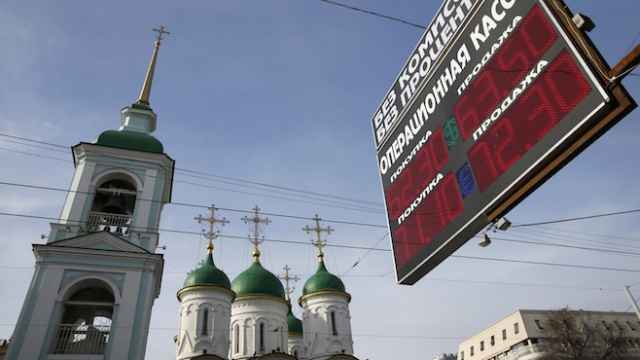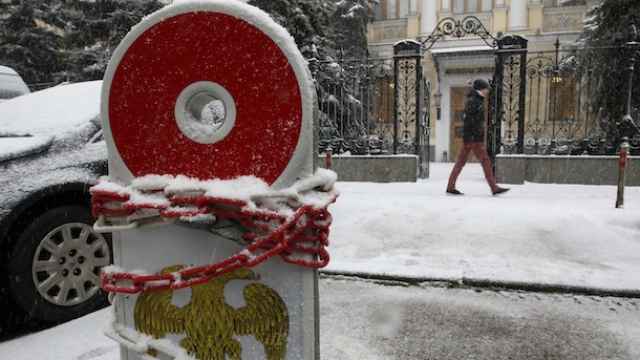Austria's Raiffeisen bank will close its branches in Russia's Far East to improve efficiency after they generated little income and had few opportunities for growth, a move which shows the impact of Russia's economic crisis on the sector.
Banks are suffering from higher bad loan provisions and lower profits because of the crisis, deepened by Western sanctions over Moscow's role in the Ukraine conflict and lower oil prices.
Raiffeisen bank said the decision to close seven branches in six of the Far East's main cities was taken because of the low potential for developing its customer base in the region, which is sparsely populated and largely served by Russian banks.
"In the current environment, it is important to be efficient and profitable," the bank said in a statement. "In the development of our sales network, we will focus on those cities where our offices show sufficient profitability."
Foreign banks have been cutting their exposure to Russia, once considered one of the world's fastest growing banking markets, since the crisis hit last year, driving the ruble down against the dollar and fueling capital flight.
Raiffeisen bank said it was considering the possible sale of its loan portfolio and customer segment of small and micro businesses, and was doing all it could to support its customers.
On Thursday, Standard & Poor's rating agency said the Russian banking system could see its bad loans rise to 17-23 percent this year from around 8 percent last year, and that profit for the sector was seen at close to zero.
Russia has been forced to support many of its banks with capital injections and other measures after its largest lenders were all but cut off from global financial markets by European Union and U.S. sanctions.
A Message from The Moscow Times:
Dear readers,
We are facing unprecedented challenges. Russia's Prosecutor General's Office has designated The Moscow Times as an "undesirable" organization, criminalizing our work and putting our staff at risk of prosecution. This follows our earlier unjust labeling as a "foreign agent."
These actions are direct attempts to silence independent journalism in Russia. The authorities claim our work "discredits the decisions of the Russian leadership." We see things differently: we strive to provide accurate, unbiased reporting on Russia.
We, the journalists of The Moscow Times, refuse to be silenced. But to continue our work, we need your help.
Your support, no matter how small, makes a world of difference. If you can, please support us monthly starting from just $2. It's quick to set up, and every contribution makes a significant impact.
By supporting The Moscow Times, you're defending open, independent journalism in the face of repression. Thank you for standing with us.
Remind me later.






